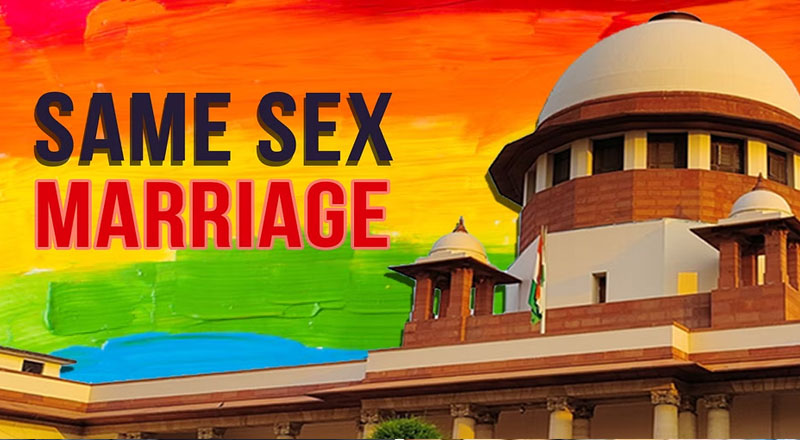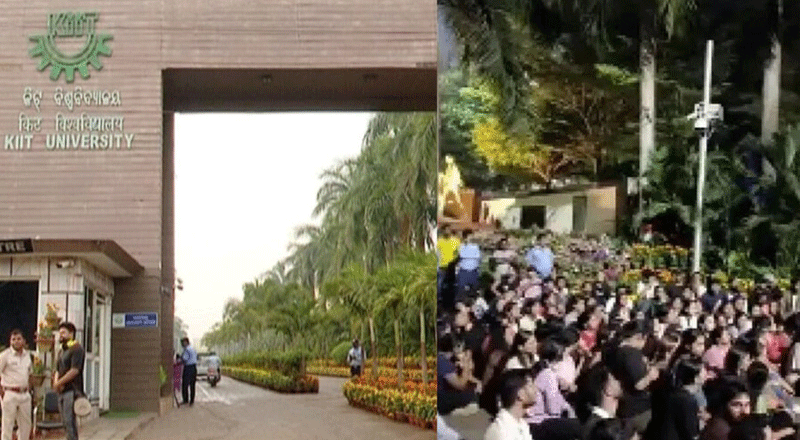- SC refers same-sex marriage pleas to Constitution bench, calling it a “very seminal issue”.
- The Centre had earlier said that a “legislative understanding of marriage in the Indian statutory & personal law regime” refers to marriage between a biological man and biological woman.
- CJI said that it is not necessary that a child adopted by a homosexual couple will be a homosexual.
- The Solicitor General, representing the Centre, said that unlike in Mohammedan law, marriage is not just a contract in the case of Hindu law.
- On September 6, 2018, the SC decriminalised consensual gay sex between adults, it also decriminalised Section 377 of the India Penal Code (IPC) which considered sex with the same gender as a criminal activity.
- Currently, there are 32 countries globally where same-sex marriage is legal, In Asia, Taiwan was the first country to recognise such unions in 2019.
SC refers same-sex marriage pleas to Constitution bench. The Centre had earlier said that a “legislative understanding of marriage in the Indian statutory & personal law regime” refers to marriage between a biological man and biological woman.
Calling it a “very seminal issue”, the Supreme Court of India (SC) on Monday referred the pleas seeking legal validation of same-sex marriages to a five-judge constitution bench for adjudication. A three-member bench, headed by Chief Justice of India (CJI) DY Chandrachud, said that the submissions on the issue involve an interplay between constitutional rights on the one hand and special legislative enactments, including the Special Marriage Act, on the other. The pleas will now be heard on April 18.
“Having due regard to the broader context of the petitions before this court, the inter-relationship between the statutory regime and constitutional rights, we are of the considered view that it would be appropriate if the issues raised are resolved by a constitution bench of five judges of this court,” the bench said, while terming it a “very seminal issue”.
While hearing the petitions, CJI Chandrachud said that it is not necessary that a child adopted by a homosexual couple will be a homosexual. “The adopted child of a lesbian couple or of a gay couple does not have to be necessarily a lesbian or a gay,” he said.
Solicitor General Tushar Mehta, who was representing the Centre, told the bench that unlike in Mohammedan law, marriage is not just a contract in the case of Hindu law. Emphasising that the question of granting legal sanction to a relationship is essentially a function of the legislature, Mehta said the issue may have an impact on a statute like the one for adoption if recognition is granted to same-sex marriage.
In an affidavit filed before the apex court, the government has opposed the petitions, citing that the petitioners cannot claim a fundamental right for same-sex marriage to be recognised under the laws of the country. At the same time, it submitted that although the Centre limits its recognition to heterosexual relationships, there may be other forms of marriages or unions or personal understandings of relationships between individuals in a society and these “are not unlawful”.
On September 6, 2018, the SC decriminalised consensual gay sex between adults. It also decriminalised Section 377 of the India Penal Code (IPC) which considered sex with the same gender as a criminal activity. However, it said that this should not be meant as conferring any right including the right to marry. So, homosexual couples currently do not have a right to legally marry in India.
Currently, there are 32 countries globally where same-sex marriage is legal. In Asia, Taiwan was the first country to recognise such unions in 2019





